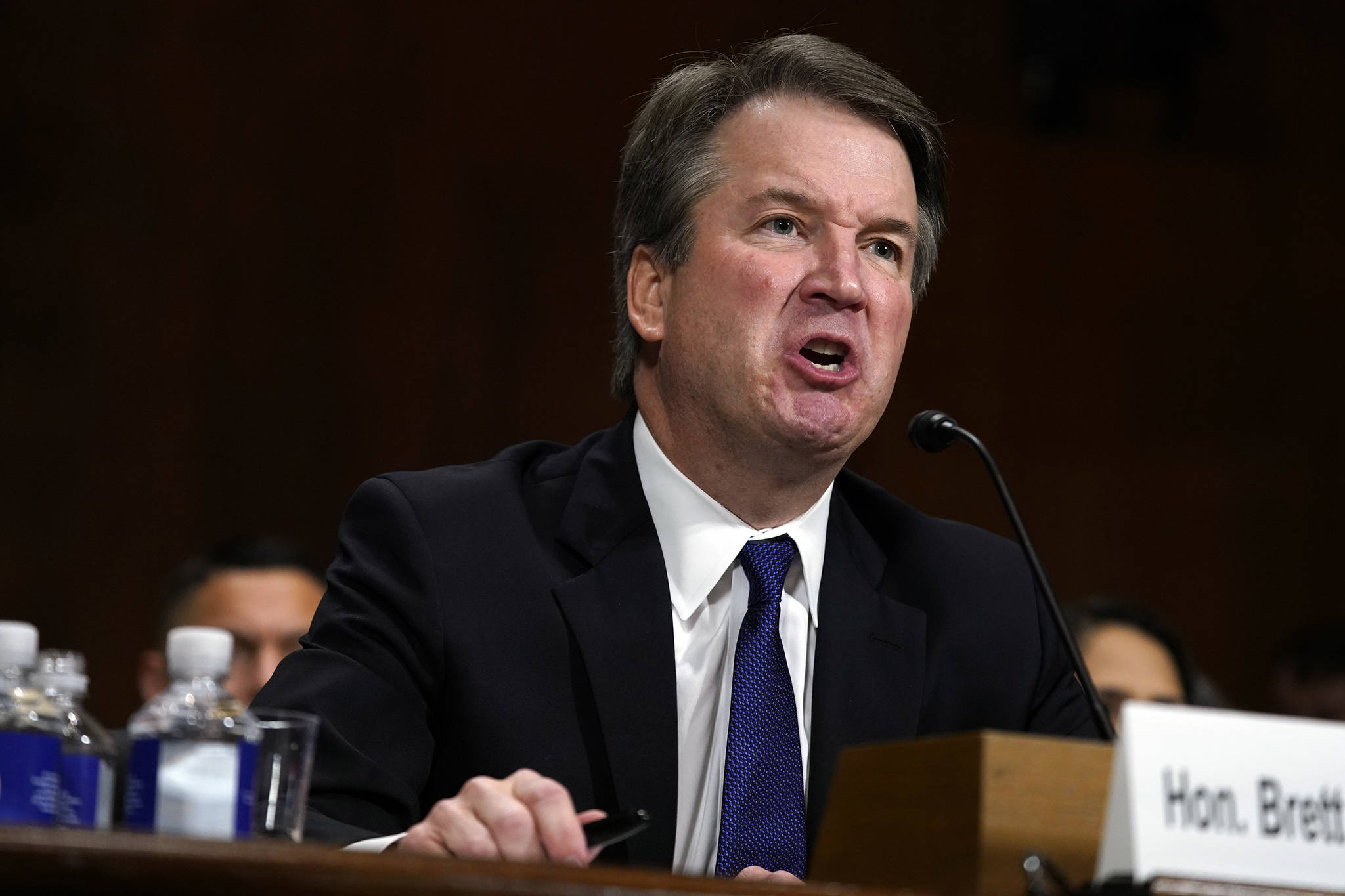As The New York Times columnist Bret Stephens recently wrote, I too “have absolutely no idea what, if anything, happened between Brett Kavanaugh and Christine Blasey Ford at a party in Maryland in the early 1980s.” No one does. But what every intelligent, informed American does know is the fact that not reporting an attempted rape to the police isn’t proof it didn’t happen.
According to an annual study by the U.S. Department of Justice, rape is only reported to the police 31 percent of the time. Only 5 percent result in arrests. And only 1 percent are prosecuted. Studies show those figures to be lower for cases of attempted rape.
These statistics aren’t new. But like the #MeToo movement added names and faces to all forms of sexual offenses, #WhyIDidntReport is responding to President Donald Trump’s ridiculous tweet by providing first-hand accounts of why victims chose not to go to the police.
For U.S. Sen. Lisa Murkowski, R-Alaska, that seems to have shifted her primary concern away from Kavanaugh’s qualifications for the U.S. Supreme Court. Now she says it’s about “whether or not a woman who has been a victim at some point in her life is to be believed.”
What does believing Blasey Ford mean?
This not a criminal trial. I don’t think she should have to prove her accusation beyond a reasonable doubt. On the other hand, like Stephens, I believe the presumption of Kavanaugh’s innocence is still as a fundamental right that must be respected. Stephens is right to say “sexual assault is evil, but so is bearing false witness.” And to argue Ford “has a moral obligation to demonstrate, as best as she can, that the serious charge she has brought against Kavanaugh is true.”
But after that, Stephens writes “if she fails to do so … she will have smeared Kavanaugh.” I think that by implying she’s lying or telling her story for dishonorable reasons, it unjustly removes the presumption of innocence which she’s equally entitled. Because without a rigorous investigation, the submission of its findings, testimony by Kavanaugh’s friend that Ford claims encouraged the assault, and character witnesses called by both sides, we still won’t know “what, if anything, happened.”
Furthermore, smear in the context he uses serves as a warning that no woman should risk reporting a sexual assault by a man of upstanding reputation unless they have irrefutable evidence that the crime did occur. Anything less could be considered a slanderous lie.
If this were a criminal trial, reasonable doubt would favor the accused. He’d be acquitted. That doesn’t automatically make the accuser guilty of lying under oath. And as the victim knows, the trauma experienced from the crime itself is compounded by having their story doubted and watching the perpetrator walk free.
Assuming her story is true, that’s how Ford will feel if Kavanaugh is confirmed. And the message to women will be our judicial system still heavily favors men in cases of sexual assault.
Now consider a wrongful judgment going the other way in a criminal case. An innocent person would be sent to jail if the jury believes the accuser’s false testimony. Preventing that gross injustice is why “beyond a reasonable doubt” is the threshold of proof.
But that’s not the problem in this case. If Ford’s story isn’t true, but the Senate believes her anyway, Kavanagh will still have his freedom, a prestigious lifetime seat on the U.S. Court of Appeals, and a $200,000 annual salary. He just won’t attain highest possible peak in his judicial career.
What he wouldn’t be able to escape under those circumstances is the trauma associated with being falsely accused of attempted rape. And short of convicting Blasey Ford for perjury, that’s true even if he is.
The difference is very few men will relate, on a personal level, to Kavanaugh’s disappointment, anger and sense of judicial betrayal if he’s not confirmed. But confirming him will remind the thousands of traumatized women exactly why they chose to keep being sexually assaulted a secret for most of their lives.
Murkowski seems to be sensitive to this tragic history and the suffering it projects into our society. It’s why I hope she, and a few other senators in her party, will bend the arc of justice towards Ford.
• Rich Moniak is a Juneau resident and retired civil engineer with more than 25 years of experience working in the public sector. He contributes a weekly “My Turn” to the Juneau Empire. My Turns and Letters to the Editor represent the view of the author, not the view of the Juneau Empire.

